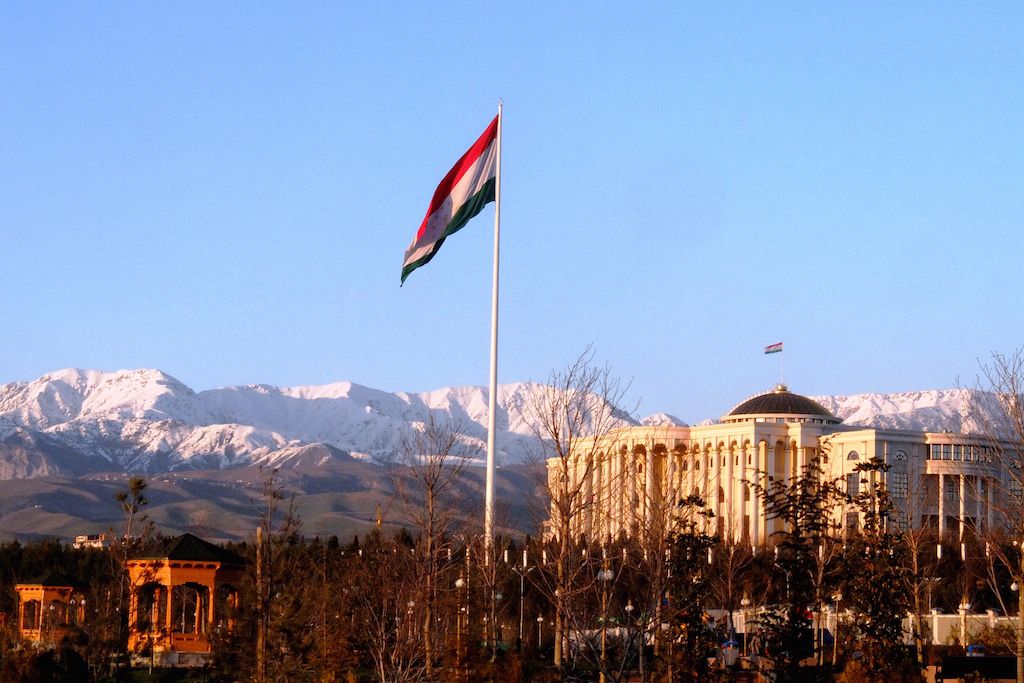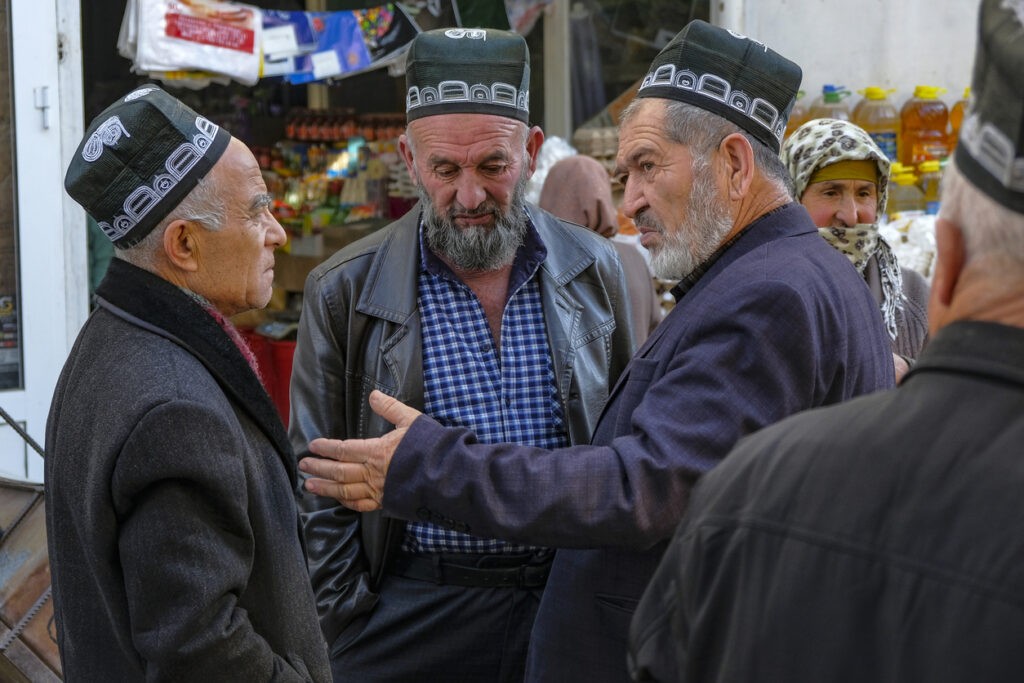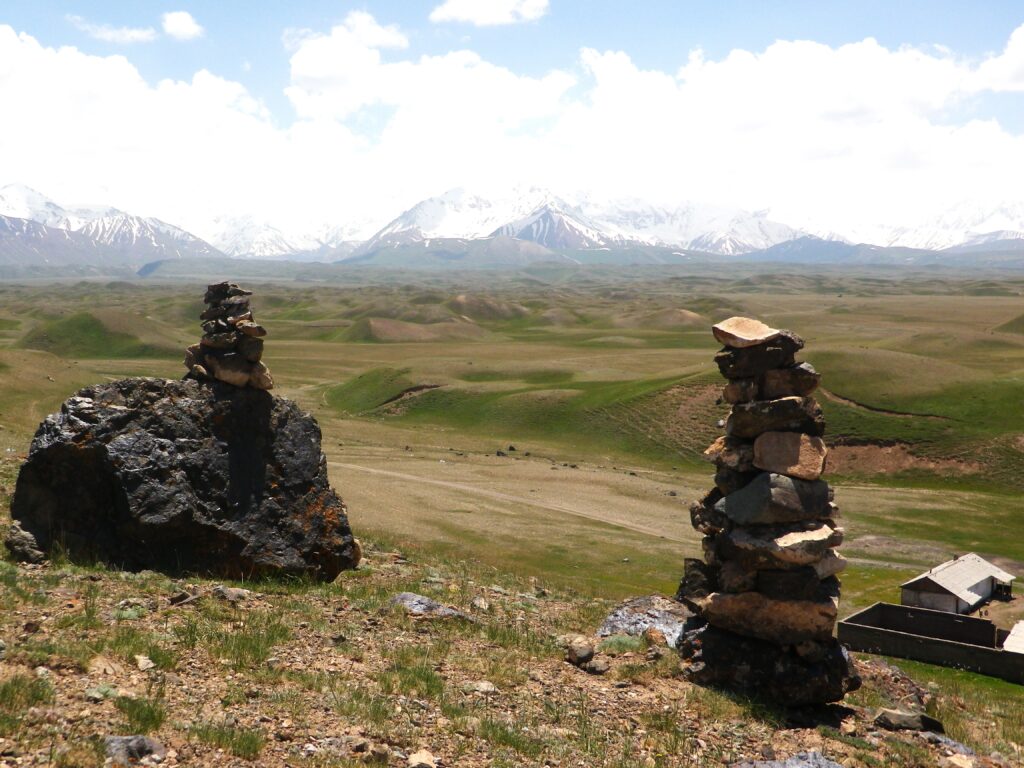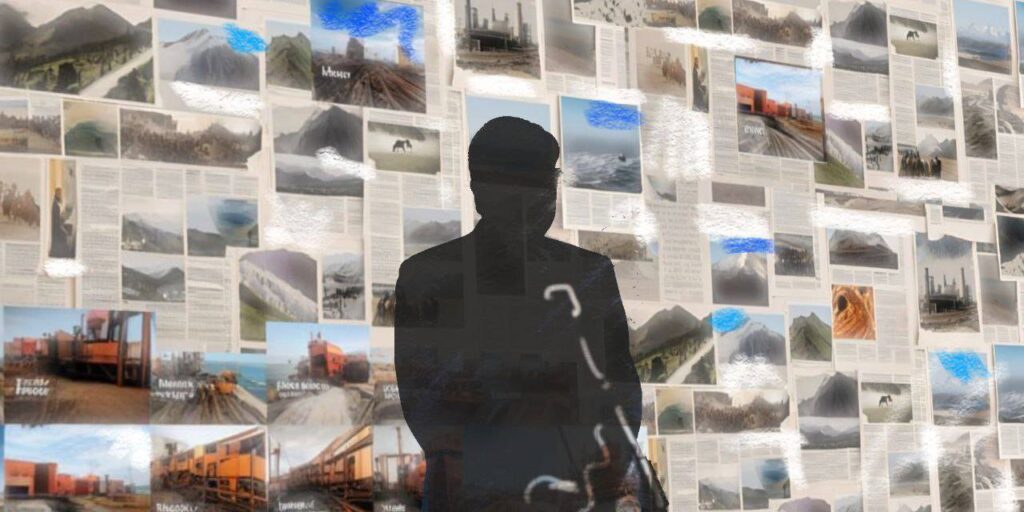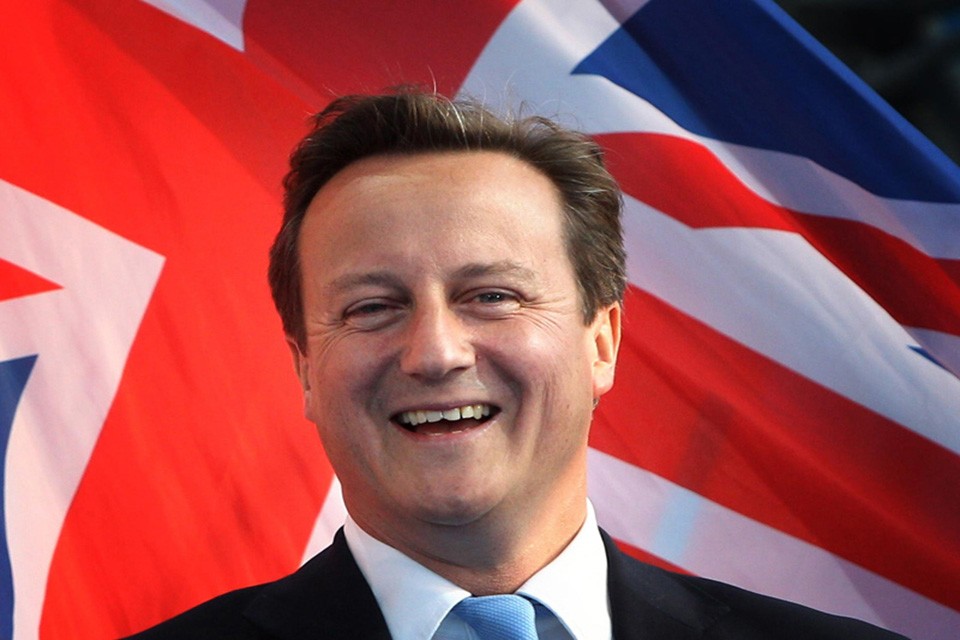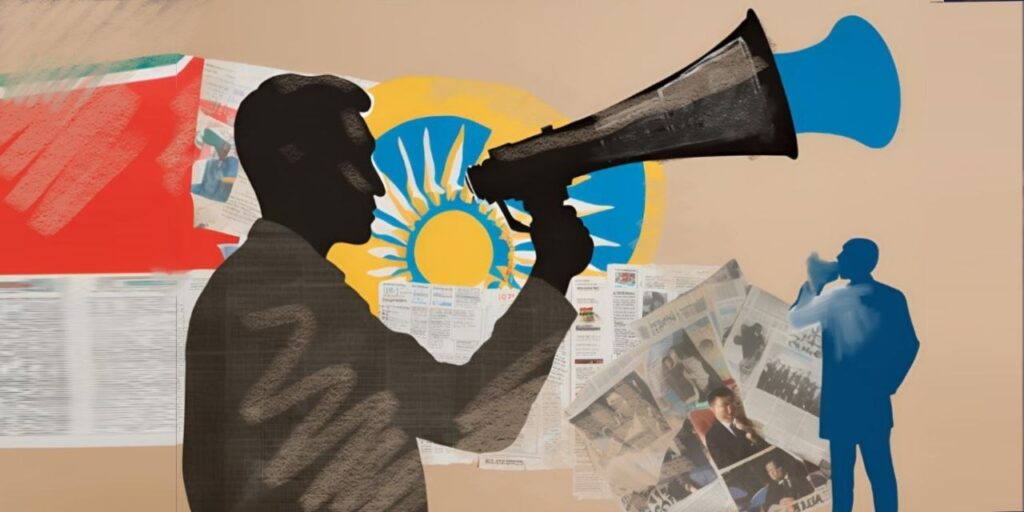DUSHANBE (TCA) — Radio Free Europe/Radio Liberty (RFE/RL) President Jamie Fly has called on Tajikistan’s leader to ensure that the right of Tajik audiences to receive objective news and reporting are respected and that Radio Free Europe/Radio Liberty journalists in the Central Asian country can work freely and without intimidation, RFE/RL reported.
Fly met with Tajik President Emomali Rahmon on November 7, only days after Tajik authorities gave a half-hearted response to the accreditation requests of nearly 20 journalists and staff of RFE/RL’s Tajik Service, known locally as Radio Ozodi.
At a meeting in Zurich at RFE/RL’s request during a tour by the Tajik president through Europe, Fly told Rahmon that “RFE/RL adheres to the highest journalistic standards, and will not compromise these standards because of government threats or intimidation.”
The meeting came days after the Tajik Foreign Ministry on October 31 failed to fully grant the accreditation requests of 18 RFE/RL journalists and staff members whose credentials have been withheld by the ministry or were set to expire on November 1.
The ministry granted partial accreditation to seven journalists — six for six months each, one for three months — while continuing to withhold it from 11 others.
Fly told Rahmon he “cannot accept a situation where RFE/RL journalists are selectively accredited or only accredited for short durations,” and indicated that if the problem was not resolved promptly, RFE/RL would need to review its operations in Tajikistan.
Rahmon “indicated the important nature of Radio Ozodi’s work and stated that he wanted Ozodi to remain in Tajikistan,” Fly said.
Tajik law requires that journalists apply to the Foreign Ministry for accreditation on an annual basis and receive responses in a timely manner. The law prohibits foreign-media journalists from working without accreditation.
A statement issued on the Tajik presidency’s website after the meeting quoted Rahmon as saying that “rumors” about the termination of the RFE/RL operation in Tajikistan were “false,” and that “18 RFE/RL employees, who have been registered officially, are freely working.”
Rahmon complained to Fly that RFE/RL had recently been focusing mainly on reporting about what he called “terrorist parties and movements whose activities were banned,” and called for “objective” coverage of political, social, and economic issues, the statement said.
Rahmon said that the activity of any media should be strictly based on the laws of Tajikistan, his press service said.
Free-press advocates have criticized Tajikistan for using accreditation as a pressure tactic.
Reporters Without Borders (RSF) noted in a statement on November 7 that Ozodi journalists in Tajikistan “are subject to the constant threat of having their press accreditation withdrawn.”
RSF called on French President Emmanuel Macron and other European leaders to condition their relations with Tajikistan on respect for press freedom. Macron is expected to meet with Rahmon in Paris during the upcoming Paris Peace Forum.
RFE/RL, which is funded by a grant from the U.S. Congress through the U.S. Agency for Global Media, operates as an international media organization in Tajikistan.
